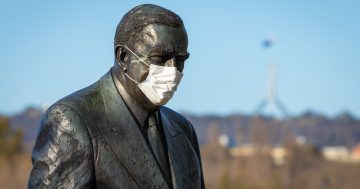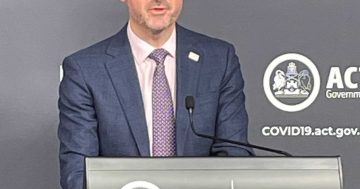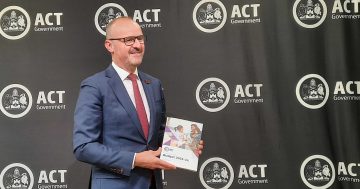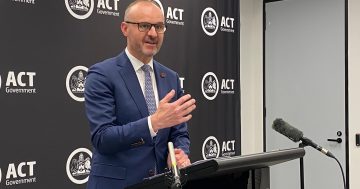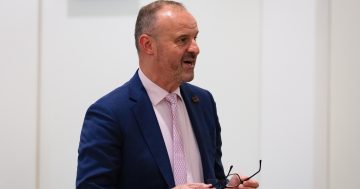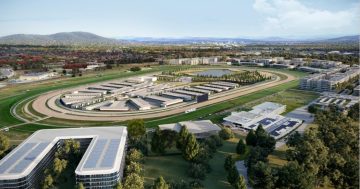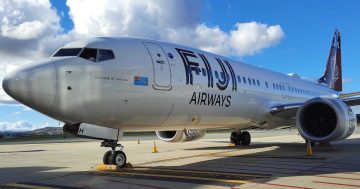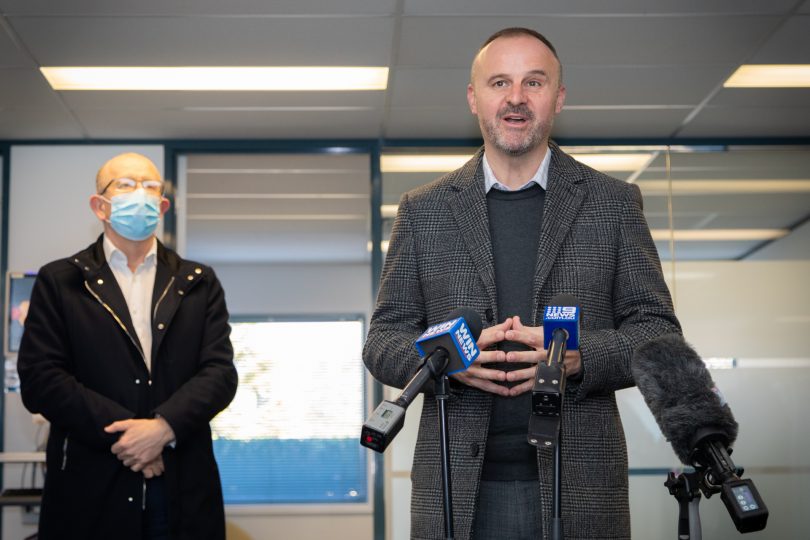
Chief Minister Andrew Barr announced an end to the mask mandate. Photo: Michelle Kroll.
The ACT’s mask mandate will end at 11:59 pm on Friday (9 July), despite the NSW lockdown being extended by a week until 16 July.
Those subject to stay at home orders are able to leave after 14 days since the last time they were in the Greater Sydney region. Less than 50 people are quarantining in the ACT after visiting a domestic exposure location.
Around 6400 people in the ACT are currently subject to stay at home orders because they have been in the Greater Sydney region in the preceding fortnight, but this is down significantly from more than 10,000 last week.
Chief Minister Andrew Barr said the decreasing number of people travelling between the two capital cities, coupled with no seeding of the virus outside Greater Sydney, meant health authorities were comfortable removing the mandate.
Mr Barr urged Canberrans to use their common sense when travelling and attending public gatherings. He is encouraging mask use where people cannot socially distance or during places of prolonged exposure, like public transport.
“Assume that there is still a level of risk. It is lower than a week ago, but there is still a level of risk. Behave accordingly,” he said.
Mr Barr also said conversations had been progressing regarding an expanded vaccine rollout that would include workplaces after the issue was raised at last Friday’s National Cabinet meeting.
“In thinking about a business or workplace rollout, the public service, defence and universities would be a good place to start in the ACT,” he said.
“As we get more vaccines, we will be able to get them out to more people, more quickly.”
Although arrangements for the workplace rollout are not clear, Mr Barr suggested that the Commonwealth may contract out the vaccination to a third-party provider as occurs with flu shots. Discussions were also needed for universities which are “semi-government, semi-private”.
“I took the opportunity to remind the Prime Minister that the Australian Government employees one in four people in the workforce in the ACT and the defence and university sector also cover a large number of younger people who are not currently eligible for vaccination.”
The rollout of the defence sector would remain under the remit of the Coordinator-General of Operation COVID Shield, Lieutenant General John Frewen.
The vaccination of people under the age of 40 was again brought up after NSW Health Minister Dr Kerry Chant revealed that 14 out of 37 hospitalisations in the state are under 55.
She said this should dispel the myth COVID-19 only affects older people.
Eight people in hospital are under the age of 35 and of the seven people in intensive care, one is aged in their 30s, one in their 50s, two in their 60s and three in their 70s.
Mr Barr said this highlighted the need for public health measures to protect the entire community, not just older Australians.
“Older Australians are more at risk of severe disease and death than younger people, but younger people can still get sick and die,” he said.
“The rationale for the rollout of the vaccine program has been to focus on those most at risk. We would love to vaccinate more people, but we are running our program full tilt … until more supply becomes available.”













